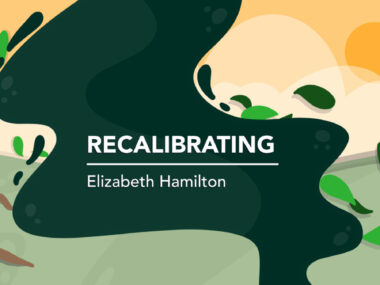When it comes to clinical trials, our children deserve our courage
Why I'm urging Congress to help advance pediatric trials on Hill Day
Written by |

Staring across the table, I gave a reassuring smile to the student intern who was shadowing me that day. I mouthed “it’s OK” as heavily armored police moved through the home. We’d arrived at a client’s house just moments before a search warrant was executed and, with our badges visible, were waiting with heads down for the scene to be cleared.
Our clients weren’t home at the time, but individuals present were arrested based on what was found in the residence. In talking with an officer, a comment was made that this house was “no place for children.” As a result, the system I worked for began to move its wheels of intervention.
In 2000, I ran passionately into work that advocated for the well-being of children — long before my 12-year-old struggled to walk and was later diagnosed with Friedreich’s ataxia (FA).
For 20 years, I worked at an agency that was mandated to assess and ensure the safety, permanency, and well-being of the children in our community. Over that time, our mindset shifted on what that meant. In the early 2000s, we used the phrase, “When in doubt, err on the side of caution.” With the Fostering Connections to Success and Increasing Adoptions Act of 2008, we moved to erring on the side of giving families resources and trust.
What we found empirically was that when parents and caregivers were given the resources, education, and support they needed, they made decisions for their children that created positive outcomes. Personally, I worked with parents and caregivers who made courageous decisions for their children in ways that humbled me, both in the field and as an administrator who drafted policies and processes to guide family engagement.
The pivot wasn’t without some fear or concern from a macro perspective, as administrators pitched the change, and from a micro level, as names and faces turned concepts into real people. There was always the concern, “What if something happens?” Letting go of more restrictive practices and leaning into empowerment were hard. But as the engagement shifted, so did the outcomes.
Equipping parents with the necessary resources
Now I find myself outside of systems pushing in to advocate for children in a new way. I see both sides of the coin as I flip back and forth between the perspectives of provider and client. Change without guidance creates risk, and not moving the science forward leaves treatment gaps.
FA progresses differently for individuals. It can hit the younger population with devastating blows. Since my daughter’s 2020 diagnosis, clinical trials opened for adults while the pediatric population seemed to be waiting in the wings.
In sidebar conversations with advocates, policymakers, and medical professionals, one thing I hear is the desire to protect children. I want that, too! I always counter with my own experiences — that when parents and caregivers are resourced, they will do what’s needed to protect their own children. We just need to give them the right tools.
The 2023 release of guidances on pediatric drug development by the U.S. Food and Drug Administration was an incredible achievement. I remember cheering when I read through them. They were a good first step toward increasing pediatric inclusion in trials, but that’s only part of the puzzle. Social Work 101 will tell you that policies without funding are ineffective.
As next week’s United Against Ataxia Hill Day rolls onto the scene, our community will be asking for several areas of support. These include the reapproval of the Rare Pediatric Disease Priority Review Voucher program as well as the cosponsorship of the Accelerating Kids’ Access to Care Act. Both would provide critical support needed to advance pediatric clinical trials and secure treatments.
Congress, please show the level of courage and determination asked of all those public servants who are out in the field caring for your constituents. Deliver a message that the pediatric population has value by supporting these measures.
Otherwise, millions of children with rare diseases may not receive lifesaving medication, which can be approved only though clinical trials, while their health declines. When we abandon them to face terrifying diseases in life’s waiting room while their caregivers and medical professionals watch helplessly, the situation is absolutely no place for children.
Note: Friedreich’s Ataxia News is strictly a news and information website about the disease. It does not provide medical advice, diagnosis, or treatment. This content is not intended to be a substitute for professional medical advice, diagnosis, or treatment. Always seek the advice of your physician or another qualified health provider with any questions you may have regarding a medical condition. Never disregard professional medical advice or delay in seeking it because of something you have read on this website. The opinions expressed in this column are not those of Friedreich’s Ataxia News or its parent company, Bionews, and are intended to spark discussion about issues pertaining to Friedreich’s ataxia.




Becca Lange
Yes!!! All of this! So thankful for you, your unwavering advocacy for our kids and your way with words.
Elizabeth Hamilton
I am so grateful for you! Thanks for helping me continue to speak truth and be bold! Our children are watching.
Pádraig Coyne
Well said Elizabeth. Excellent communication of the pediatric trials conundrum! Thank you for your leadership and advocacy for our community
Elizabeth Hamilton
Thank you for your continued support, for advocating for our children as well! The beautiful thing is we don't have to have all the answers, we just need to keep asking the good questions, humble ourselves to learn from others, remain bold, and courageous! Much love to our global community